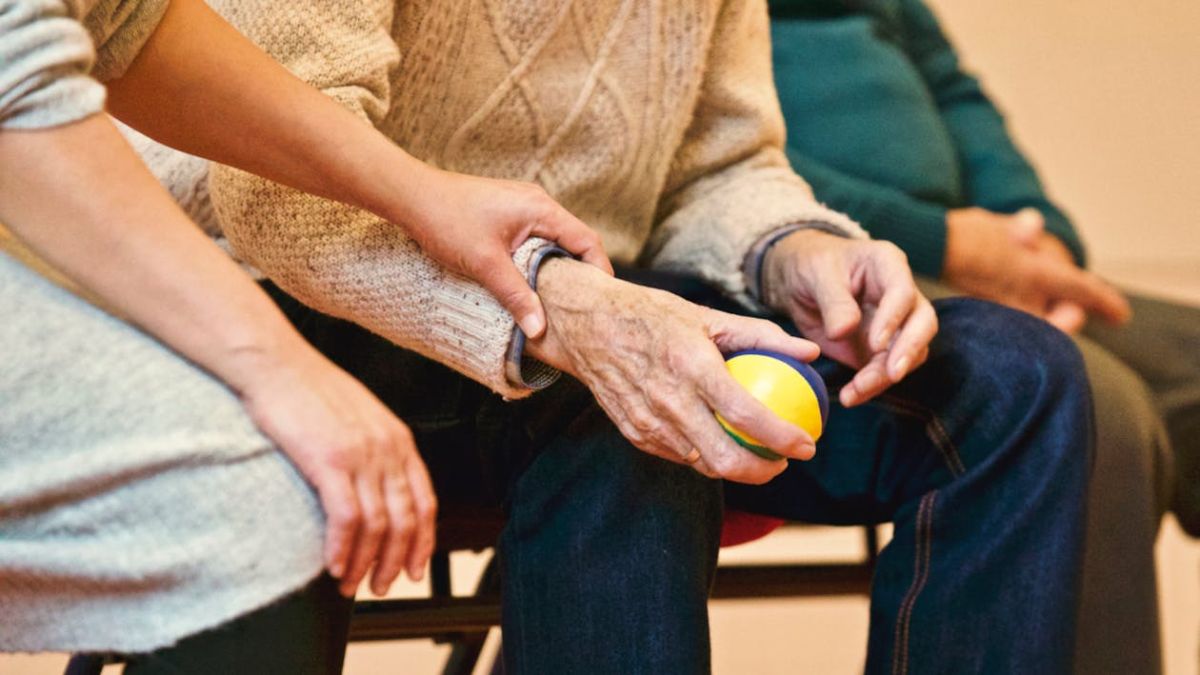When you hear that someone you love has just received a diagnosis of Alzheimer’s disease, you may feel overwhelmed. You may also wonder what to do next. While everyone’s situation is different, here are a few suggestions that might help you feel more in control.
It’s okay to grieve. This is one of the first things you need to know. In fact, it’s okay to feel whatever emotions you are experiencing at this time. An Alzheimer’s diagnosis signals that your family will undergo many changes and change can be hard. Your roles will shift from what they were, and it will take time to adjust. The best thing you can do is to find support, whether it’s with a counselor, your close friends, your faith community, or a support group.
Ask for help. This is no time to go it alone. Make a list of all the people around you who could be of assistance. This could be anyone who can help you in person or even someone who could refer you to helpful people. Ask for specific favors. Your friends may not know what kind of help you need, so let them know exactly how they can assist.
Here are a few suggestions:
Ask someone to set up a Meal Train — homemade meals taste better when they’re delivered right to your door (mealtrain.com makes it easy to organize!)
Ask a friend to set up a standing date with your loved one to allow you to get out of the house
If you have pets, ask a young neighbor to walk your dog or take over some pet responsibilities
That same young neighbor might benefit from a “mentoring” relationship with your loved one with Alzheimer’s. Find out what your family member is passionate about and how they feel about being a mentor to a young one. Have a chat with your young neighbor’s family to see if they’d be open to setting up a weekly mentoring visit — giving you some time to breathe, your loved one some meaningful engagement, and for the young person, a valuable learning experience.
Reach out to your local home care agency and learn about your options for introducing a few hours of care in the home. You can start small with a caregiver just a few hours in the afternoons to accompany your loved one to a museum, a park, do some light housekeeping, or meal preparation. As time goes on, you can integrate more hours of care, since you’ve already developed a trusting relationship with the aide.
Learn more about the disease. While every person with Alzheimer’s is different, it’s important to learn the basics of the disease so you can adapt your communication strategies, approach, and the environment over time. Remember that the disease affects the brain in a variety of ways. Sometimes Alzheimer’s disease can cause frustration when family members haven’t yet learned how to modify their approach or if they take what’s said personally. Take a deep breath to stay calm, put on a friendly face, validate your family member’s emotions, and continue to offer them choices in their daily life. This can help your interactions go more smoothly.
You can also reach out to the helplines below to further discuss the best communication strategies and resources:
Alzheimer’s Foundation Helpline: 866-232-8484
Alzheimer’s Association Helpline: 1-800-272-3900
CaringKind (New York City): 646-744-2900
Get involved together. There are plenty of activities around New York City for people with memory loss and their families. Museum Access programs at the MET, MoMA, Guggenheim, Jewish Museum, Brooklyn Museum, and other museums have programs primarily geared toward people living with dementia. You can sing together in the Unforgettables Chorus, create art with Arts and Minds, dance at the Alzheimer’s Foundation of America, or take a stroll with the Brooklyn Botanic Gardens on a Memory Tour. For more ideas, you can also look at CaringKind’s cultural arts program, Connect 2 Culture.
Have an important conversation. Find out what your family member wants in terms of their future care. If you haven’t already had this conversation, now is the time to do so. This gives you the ability to respect their wishes in the future and to ensure their decisions are honored. It’s advisable to have this conversation sooner than later, and there are a few important documents that will need to be completed: a Health Care Proxy, a Durable Power of Attorney, and a Living Will.
First, discuss their choice for a Health Care Proxy, which designates someone to make health care decisions on their behalf if they are no longer able to do so themselves (New York’s proxy form can be found here and requires two witnesses).
A Durable Power of Attorney designates someone to make legal and financial decisions if the person is unable. It is best to consult an Eldercare Attorney for this, as they are well-versed in the updated requirements.
Finally, a Living Will discusses what types of treatment are wanted and whether they should be more aggressive or more for comfort. A Living Will guides the appointed Health Care Proxy and often makes their job less stressful since the decisions are made in advance and in writing.
Most of all, give yourself grace and time. The above suggestions may help you move forward, but we each cope in our own way. Take your time and go day by day. If you want to explore your options for additional support, we’re happy to speak with you.
(Care to connect? I am happy to chat about memory care services at any level. You can reach me at 212-369-6400)





